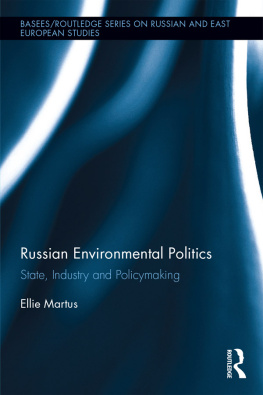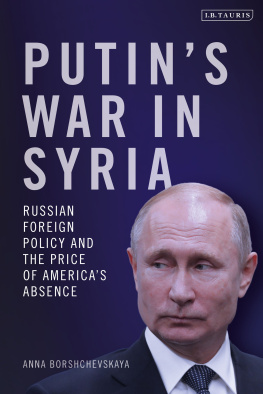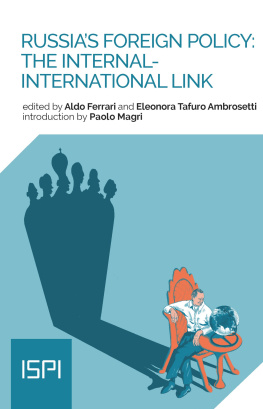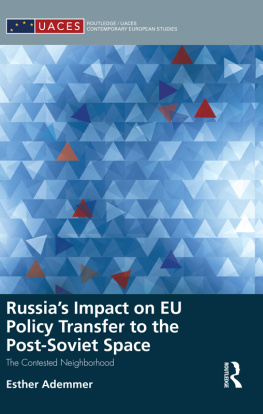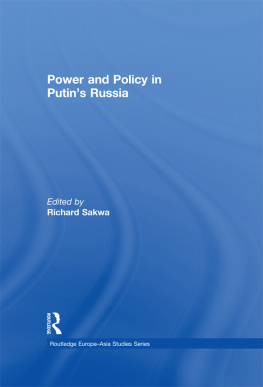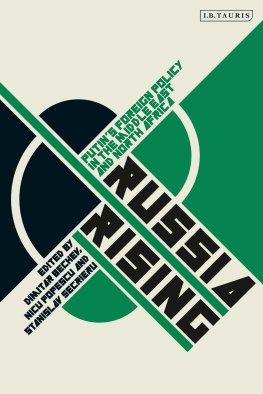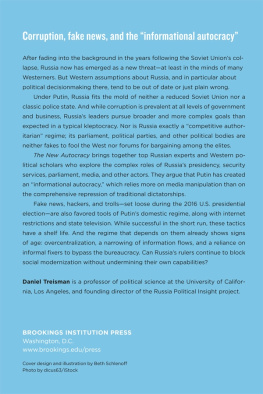Ellie Martus - Russian Environmental Politics: State, Industry and Policymaking
Here you can read online Ellie Martus - Russian Environmental Politics: State, Industry and Policymaking full text of the book (entire story) in english for free. Download pdf and epub, get meaning, cover and reviews about this ebook. year: 2017, publisher: Routledge, genre: Politics. Description of the work, (preface) as well as reviews are available. Best literature library LitArk.com created for fans of good reading and offers a wide selection of genres:
Romance novel
Science fiction
Adventure
Detective
Science
History
Home and family
Prose
Art
Politics
Computer
Non-fiction
Religion
Business
Children
Humor
Choose a favorite category and find really read worthwhile books. Enjoy immersion in the world of imagination, feel the emotions of the characters or learn something new for yourself, make an fascinating discovery.
- Book:Russian Environmental Politics: State, Industry and Policymaking
- Author:
- Publisher:Routledge
- Genre:
- Year:2017
- Rating:4 / 5
- Favourites:Add to favourites
- Your mark:
Russian Environmental Politics: State, Industry and Policymaking: summary, description and annotation
We offer to read an annotation, description, summary or preface (depends on what the author of the book "Russian Environmental Politics: State, Industry and Policymaking" wrote himself). If you haven't found the necessary information about the book — write in the comments, we will try to find it.
Protecting the environment is a key issue for Russia, with its vast wilderness areas and its economys reliance on extractive industries, which have the potential to cause massive pollution. This book explores how policymaking works in Russia, focusing on the important field of environmental policy. It argues that, contrary to the prevailing view that the presidency dominates the policy process, with Putin making all major decisions or at least being the arbiter between conflicting parties, policy is in fact made a range of competing interests including the bureaucracy and influential industry and industrial association lobbyists, with relatively little intervention from Putin. The book shows how, although Russia does not have a strong civil society, environmentalist views are represented through the institutionalized bureaucracy. The book concludes that policy decision making in Russia is quite dispersed and not overcentralized.
Ellie Martus: author's other books
Who wrote Russian Environmental Politics: State, Industry and Policymaking? Find out the surname, the name of the author of the book and a list of all author's works by series.

